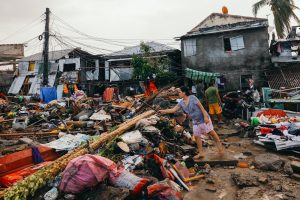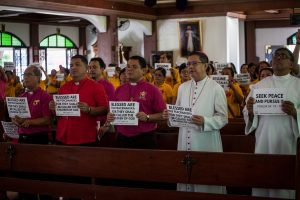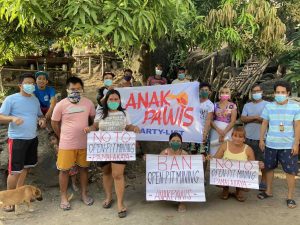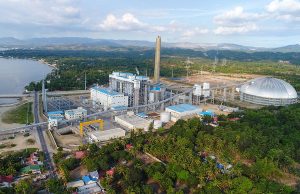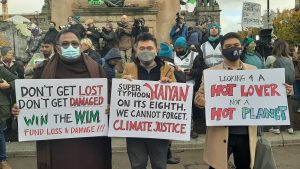LATEST
A mine-shattered life
The grave disregard of this government toward the welfare of poor communities and the environment will result in many more disasters, especially now that the climate crisis is getting worse.
Oxfam raises concern over risk of COVID transmission among typhoon survivors
As of January 17, there were still 228,529 displaced typhoon survivors staying in evacuation centers
Ecumenical pathways in our synodal journey: Unity as mark of our Christian mission
The totality of ecumenical unity is achieved in lived communion among Churches
Robredo inks deal with pro-environment groups on green agenda
Robredo and representatives of various organizations agreed that the country must act on the “deteriorating state” of its ecosystem and biodiversity areas, and that there is “an increasing vulnerability of our communities to climate change.”
Fisherfolk group stages protest against lifting of open-pit mining ban
Militant fisherfolk group on January 12 staged a protest action against the lifting of the ban on open-pit mining, which the group described as a “major environmental disaster in the making.”
Greenpeace warns coal import dependence to worsen energy security in Southeast Asia
Greenpeace warned that consumers will shoulder the high electricity costs resulting from fossil fuel import dependence
Emergency response and resiliency framework
How to concretely pursue or how to go about the integration of humanitarian and developmental programming, with resiliency as an overarching strategy, is what we need to focus on in our sustained response. I
Catholic prelate calls for probe into typhoon-damaged coal storage facility operation in Cebu
ishop Gerardo Alminaza of San Carlos urged the local government of Toledo City to “exercise its mandate to secure the safety of its residents” and conduct an immediate probe.
Feast of the Baptism of the Lord
Huwag nating kampihan ang mga naninira ng kalikasan, tulad ng pagsulong ng mining o ng coal powered plants.
‘Loss and Damage Mechanism’ is justice to victims of human-induced climate calamities
Concerned world leaders should prioritize the creation of comprehensive financing systems aside from the debt assistance that they are offering. The initiative on financial relief should take from the lens that this is another way of reparations and standing firm to their account rather than luring these developing countries to accept their debt trap. In the first place, these wealthy countries are the primary reason why we are at this alarming stage of the climate crisis


